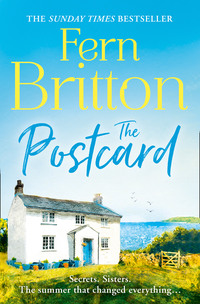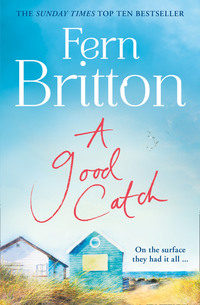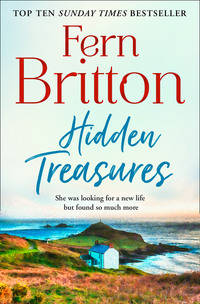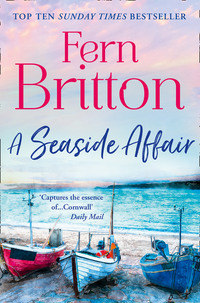
Полная версия
The Holiday Home
His workforce stood, incredulous. Some of the older women who remembered the boom years were sniffing into screwed-up tissues. The younger workers looked dumbstruck. In the end it was Reg who stepped forward and asked, ‘What do we have to do?’
*
It took Henry and the team just two weeks to produce the cardboard prototype of Lawyer, Lawyer. Four sets were made and taken home in turn by the Carew workers. Each day they would come in with suggestions, refinements and clearer rules. Finally everyone was in agreement that they had the definitive version. A game of cat and mouse between the law and the citizen. Reg oversaw the first factory-made prototype as it came off the production line.
It was beautiful. The box lid depicted Number One Court of the Old Bailey. In the dock stood a decent but anxious-looking man. On the bench sat a hideous gargoyle of a judge bearing an uncanny resemblance to Henry’s bank manager. And taking the floor was a smart lawyer, thumbs in his lapels and smiling wolfishly at the jury.
Reg carried it with pride to the boardroom and placed it on the elliptical table. The workers came and filed past it as it lay in state.
That afternoon, Dorothy dialled the local Chinese takeaway and ordered a supper for everyone. It was a party not one of them would forget.
On the eve of the World Toy Fair, Henry carefully packed the newly manufactured boxes of Lawyer, Lawyer into the back of his rented Rascal van. Dorothy was already settled in the passenger seat. The entire workforce gathered in the car park to wave them off.
Old Reg leaned in and put his hand on Henry’s shoulder. ‘Good luck, Mr Henry. Your father would be proud of you.’
Henry put the car in gear and drove carefully out of the factory car park, Dorothy waving from the window while he tooted the horn until they were all out of sight.
The World Toy Fair at Olympia was very familiar to Henry. He’d worked a stand there with his father from the time he was a boy. Only when his father fell ill did they stop attending. His death had left Henry without the cash or wherewithal to organise a stand. Now, he found himself looking forward to it. But at the same time he was consumed with nerves.
He glanced at Dorothy and said, ‘What if this doesn’t work?’
She smiled back at him. ‘It’ll work.’
‘We could lose every—’
‘We could, but we won’t.’
Most exhibitors had booked a year in advance. When Dorothy had called to make a reservation four months previously, there were few slots remaining. They were allocated a stand on an outside corner.
‘You wouldn’t put a hen in a space as small as this,’ complained Henry when he saw it.
Dorothy, who was staggering under several boxes of order forms and fliers, ignored his pessimism. ‘Help me with these, will you?’ she said, thrusting the surprisingly heavy boxes towards him. Then she looked around, hands resting on her slender hips. ‘Small but perfect. We’re handy for the loo and the café – think of the footfall we’ll have. Couldn’t be better.’
He grudgingly nodded. ‘Suppose so.’
‘Come on, Prince Charming – two more trips and the van will be unloaded.’
Dorothy was a good organiser. By midnight, their little stall looked inviting and ready for the official opening in the morning. Several other exhibitors broke off setting up their own stands and dropped by to chat and reminisce about Henry’s father. One or two were desperate to get a look inside the Lawyer, Lawyer boxes, but Dorothy was having none of it. ‘The premiere is tomorrow, boys! No peeking till then.’
The four days that followed were the busiest they’d ever known. The opening morning was slow, but that afternoon the buyer for Hamleys came by. After Henry talked him through the rules, he couldn’t resist playing a round. Henry let him win, obviously, and the buyer put an order in for such a large amount that Dorothy thought she’d misheard and left a zero off the end. When the buyer leaned over and corrected her, she couldn’t stop herself from kissing him. After that, word of mouth spread quickly. Every toyshop chain and department store was clamouring to place an order for the exciting new game.
As soon as they returned to the factory, the production line got into gear. For the first time in the history of the company, the machines were rolling twenty-four hours a day, five days a week. Extra night-shift staff were taken on to meet the orders, which were coming in from as far afield as Australia and Japan.
Within months Lawyer, Lawyer was the game on every family’s Christmas list. The fat bank manager invited Henry out for lunch. Henry accepted the invitation and was delighted when he heard the name of the restaurant: very expensive and excellent reviews. Henry selected the most extravagantly priced dishes and wine, enjoying the wincing expression of the slug sitting opposite.
Over coffee, and the finest brandy, the bank manager offered Henry as much money as he needed to expand the business. Henry thanked him, but declined to commit himself immediately.
On his return to the office, Henry immediately set about transferring all his company and personal accounts to a rival bank. Then he dictated a fax to his former bank manager, telling him to get stuffed.
A few days later, an order came through from Buckingham Palace. Henry made sure his Press Office (Dorothy) leaked the news to the Nigel Dempster column in the Daily Mail.
The company was now safer than it had been for twenty years, but there was no sitting back on their laurels. It was Old Reg who came up with the next idea. Tapping on Henry’s office door, he came in and explained that his son, who had a degree in electronics and computer science, wanted to devise an electronic version of Lawyer, Lawyer. After discussing the proposal with Dorothy and his new bank manager, Henry began investing in the technology that would produce the first hand-held Carew Family game.
The resulting worldwide sales paid off the mortgage of every Carew employee.
And that was how Henry and his beloved Dorothy came to be sitting in an open-topped Aston Martin on their way to buy Atlantic House, the Cornish holiday home of their dreams.
2
On the other side of Bodmin, past the wildness of the moor, the scenery grew gentler. Now they were travelling through a verdant countryside of fields and farms.
The Aston got stuck behind a tractor dripping slurry from its huge wheels. The smell of ammonia made Dorothy’s eyes water. Henry started to get frustrated. He accelerated and braked and weaved in and out of his side of the road, banging the steering wheel with his string-gloved hand. ‘Pull over, you village idiot!’ he snarled.
Dorothy saw the time had come to have words. ‘Henry! Do you want me to be sick on the cream leather? Besides, shouldn’t you be trying to make friends with the locals?’
Grumbling, he attempted patience. By the time the old farmer pulled into a small lay-by, waving them through, Henry was almost amiable.
He had barely finished waving a gracious acknowledgement when he found himself stuck behind a bus.
‘What do they want to bring bloody buses down these lanes for?’ he growled.
Dorothy laid a hand on his knee. ‘If we’re going to live here, we have to accept this pace of life.’
Eventually the bus stopped and Henry throttled past.
The roads narrowed into lanes the closer they got to the coast. The hedges, studded with primroses, rose high above them. Signposts boldly announced TREVAY 5 MILES. But as anyone knows, five Cornish miles can mean anything between two and ten.
Dorothy consulted her map and raised her voice to be heard above the wind. ‘We don’t want to get into Trevay itself. There’ll be a turning on the left to Lower Barton first.’
The Aston, stroking the vegetation between the narrow hedgerows, navigated the route to Lower Barton with its beautiful church and pub, then on to Higher Barton with its small supermarket, post office, pasty shop and garage, and finally down the unmade stony road to Treviscum Bay. And there, gleaming in the afternoon sun, stood the most wonderful house Dorothy and Henry had ever set eyes on.
Its large sash windows and porticoed front door seduced them immediately. Yes, the roofline was sagging, several slates were missing and the garden was badly overgrown, but they knew even before setting foot inside the door that they had to have it.
The front door opened and a young man stepped out to greet them.
‘Mr and Mrs Carew? Hello, I’m Trevor from Hawkes Property Agents. Come in, and welcome.’
Inside, the house was cool. There was a faint smell of damp, but the rooms were spacious and filled with sunlight. Henry and Dorothy took in the grandeur of the panelled hall, then followed Trevor into the high-ceilinged drawing room. If they weren’t hopelessly in love with Atlantic House already, the breathtaking view of the ocean from the French windows sealed the deal.
Careful not to sound too enthusiastic, they let Trevor escort them through the downstairs rooms and up to the bedrooms and ancient bathrooms. No words passed between Henry and Dorothy. They didn’t need to discuss it. They knew this house was for them.
Back in the hall, Trevor asked, ‘Shall I leave you to have a walk round on your own?’
‘Oh, I think we’ve seen enough,’ Henry said in a weary voice. ‘There’s a hell of a lot that needs doing. What can be done on the asking price?’
‘This is a highly desirable property that’s attracting a great deal of interest.’ Both men knew this was a lie, but it was the expected opening gambit of the duel. ‘I think it very unlikely the vendor will drop the price,’ parried Trevor, before delivering a clumsy blow: ‘In fact, I think it’s fair to say that a bidding war has already started.’
Dorothy looked pleadingly at Henry, who had begun to reach into his pocket for the car keys. ‘I haven’t come all this way to be held over a barrel. I’m a serious buyer, prepared to pay cash. Take it or leave it.’
‘Mr Carew,’ the agent stopped him, ‘I’m sure that if you were to make a hard-and-fast offer this afternoon, the vendor could be persuaded to come to some arrangement. Especially when I tell her you are a cash buyer.’
‘OK, let’s do that.’
‘Why don’t you follow me back to my office in Trevay and I’ll see if we can’t have the deal done by tonight.’
In the car, Dorothy had time to air her thoughts.
‘Please, please don’t let this house get away,’ she beseeched.
‘It’ll cost a fortune to bring the place up to scratch. Besides, I am not about to be made a monkey of by some venal estate agent who takes me for a wealthy Londoner.’
‘But you are a wealthy Londoner.’
‘Yes, dear – but he doesn’t know that.’
‘What do you suppose he thinks this car is then? A Reliant Robin? Henry Carew, your cover is already blown.’
*
Subject to a surveyor’s report and the usual searches, the deal was concluded that afternoon. Trevor, glowing with satisfaction and looking forward to working out his commission as soon as the buyers were out of the way, stood up to shake hands.
‘Congratulations,’ he said. ‘If there’s anything you need, don’t hesitate to ask.’
Dorothy, who was putting her scarf on, paused. ‘Actually, there is something: I’d love to know more about the history of the house.’
Trevor looked over at his boss. ‘Trish, where would Mrs Carew be able to find out all about the history of the house?’
Trish, who had suddenly developed a keen interest in the contents of her desk drawer, seemed a little flustered as she replied: ‘Well, erm, the library would be the place to start. And, er, we have a very good local museum …’ Then she looked up and met their gaze. ‘Actually, there is something … something you should know. A young girl died in the house. It happened about ten years ago. It’s her sister who is selling the house.’
Dorothy stopped fiddling with her scarf. ‘Died? How? Illness? Accident? Murder?’
‘Oh, nothing sinister! No, no, it was a drowning. Poor thing.’ Trish turned to Trevor. ‘Did you show Mr and Mrs Carew the smugglers’ cave?’
Trevor blushed. ‘I thought I’d leave that to the surveyor.’
‘Smugglers’ cave?’ questioned Henry. ‘Sounds fascinating. Where is it?’
‘The entrance is in the garden. There are steps leading under the house into a cave. At one time there was a passage or cavern that led out on to the beach somewhere. But I think it’s blocked off now,’ said Trish.
Dorothy wanted to know more about the dead girl. ‘Did she die in the cave?’
‘I can’t remember all the details. I believe she’d been playing in the cave when it happened. Either the tide came up or she slipped … I’m not sure. It was in the papers at the time. The library will have copies.’
Henry saw that this news had upset Dorothy. He put his arm round her. ‘Come on, old girl. We’ll make Atlantic House a happy home again.’ He turned back to Trish and Trevor. ‘Right. I think my wife deserves a slap-up meal to celebrate. Where’s the best place to have dinner and stay the night?’
*
Over the following weeks, Dorothy threw herself into researching the history of the house. The coroner’s inquest into the death of fourteen-year-old Claire Clovelly returned a verdict of misadventure. She had apparently hidden in the cave following a row with her family. Nobody was sure exactly what had happened, but the most likely explanation was that she had slipped on the slimy rocks, banged her head and drowned.
‘I think we’d better block the cave up, Henry,’ said Dorothy, fearful. ‘I don’t want Constance or Prudence going down there.’
‘The girls will be fine! They’re far too sensible to mess about down there.’
Dorothy was adamant: ‘Block it up.’
Henry gave no answer. He’d already instructed the builders to open the cave up. With high tide access for a small vessel to sail in and out, it would be the perfect place to put a boat.
*
It took all that summer and autumn for the builders to do their stuff, but by the following Easter the house was reborn. Upstairs had been remodelled so that each of the six bedrooms had its own bathroom. Henry and Dorothy’s room was the grandest, commanding a stunning view from its brand-new balcony.
The next-best was the blue room, which was cool and sophisticated, with double-aspect windows overlooking the beach and the bay.
The yellow room was bright and sunny, but slightly smaller. It had only one sash window that looked out on to the garden and the gate to the cliff path.
The remaining bedrooms were smaller still and looked on to farm buildings and the driveway.
Downstairs, the huge kitchen was once again the heart of the house. Simply done with a scrubbed wooden dresser and enormous table, it was dominated by the scarlet four-oven Aga, which had replaced the rusty old range. The roomy walk-in larder had been retained, along with the original flagstones, which had cleaned up a treat. New French windows had been installed in the sea-facing wall of the kitchen, opening on to the terrace.
They had also knocked through the old walls separating the kitchen from the dining room, which had in turn been merged with the drawing room, creating a glorious flow of light and space.
The study now doubled as a rumpus room for the girls and their school friends, who would join them for summer holidays.
It was the very epitome of eighties chic.
Outside, the ancient back door led to a newly planted herb garden and, Henry’s pride and joy, the renovated smugglers’ cave.
The curious room above ground was cool enough to house his wine cellar and the steep stone steps leading down to the cavern had been made safe.
‘Mind your head,’ he told Dorothy as he led her by the hand, the light from his torch bouncing off the dimpled walls. ‘The electrician is putting lights in next week.’
‘I still don’t like it, Henry. You shouldn’t have wasted time and money on this. It would have been better blocked up. It scares me.’
‘Don’t be silly, old thing. It’s exciting – smugglers and redcoats and all that stuff – a slice of Cornish history, right in our own backyard.’
Dorothy’s concern was writ large across her furrowed brow. ‘I don’t want to be proved right on this, Henry. It’s an accident waiting to happen.’
Henry patted her arm reassuringly. ‘I promise you, there’s nothing to fear, darling. Besides, the children aren’t little any more, so stop worrying!’
The steps took a twist and a turn and then opened out into the natural boathouse under the cliffs.
‘Ta-dah!!’
Henry stretched out his right hand and Dorothy saw something bobbing on the water.
‘What the hell is that?’
‘A 1967 Riva. The best speedboat money can buy. And you see?’ He pointed at the floor. ‘I had the lads concrete a level jetty on the old rock ledge so we can tie her up and get on and off easily.’ The torchlight picked out the jetty and the polished wooden hull. Dorothy could make out cream leather seats and a shiny wooden steering wheel.
‘How much?’ she said in an angry voice.
‘It’s a present to us from the company. We deserve a little toy.’
‘You and your bloody toys! That’s not a board game. That’s a monstrous waste of money.’
Henry was crestfallen. ‘I thought you’d be pleased. I can take you and the girls out for trips around the coast and picnics on secluded beaches.’
‘That’s another thing.’ She rounded on him. ‘Can you even drive the bloody thing?’
Henry smiled. ‘Ah well, yes, you see, I’ve booked the whole family on a seamanship course.’
Dorothy pursed her lips.
‘Don’t you want to know what she’s called?’ he asked.
‘No.’
‘Look, darling,’ he urged, pointing towards the boat.
She shook her head in disbelief as she picked out the golden letters painted on the stern: Dorothy.
Dorothy scowled. Henry kissed her. She frowned. He hugged her. Finally the beginnings of a smile reached her lips.
‘You’re mad and bad but lovely to know, Henry Carew.’
‘No greater compliment was ever received – thank you.’
*
Henry and Dorothy were very pleased with their newly restored home and loved inviting the locals in to marvel at how the old house was being reborn.
Prudence and Constance had come down to see it during the Christmas holidays and had been less than impressed. Still in the throes of being renovated, the house was barely habitable. The girls were billeted at a local hotel while the damp and mould in the bedrooms was being dealt with.
‘It’s so cold,’ shivered Pru, clad in her new striped dungarees and red ankle boots.
‘And spooky,’ added Connie, shaking her wash-and-wear perm so the corkscrew curls bounced.
Dorothy looked at them sternly. ‘There are no spooks here. And it’s cold because the central heating hasn’t been installed yet. Want to see your bedrooms?’
‘Do we get to choose?’ asked Pru.
‘Well, let’s see.’
Sighing inwardly, knowing that a jealous spat between the siblings was bound to ensue, Dorothy led the way upstairs. The three of them picked their way over the dust sheets, abandoned tools and other builders’ detritus cluttering the landing to the first door.
‘Look at the view, girls!’ Dorothy threw open the door leading to the yellow room. ‘Who wants this one, overlooking the garden and the cliff?’
Assuming their mother was showing them the best room in the hope of winning them over, Pru, who was always quickest off the mark when it came to getting what she wanted, jumped in: ‘I do!’
Connie’s shoulders slumped dramatically. ‘I knew she’d get the first choice. It’s not fair. I really like this room. Pru gets the best of everything.’
Fighting the urge to scream, Dorothy forced a bright smile and kept her voice tone jolly as she told them, ‘Prudence, wipe that conceited look off your face. Connie, please refrain from sulking. I have a super room for you – follow me.’
Pru pushed past Connie, who whispered, ‘You always get the best.’
And Pru replied sotto voce: ‘Tough shit, little sister.’
When their mother opened the door of the blue room, Connie’s mouth dropped open as she took in the double-aspect windows with views of the beach and the bay. ‘Yes!’ she cried, fist punching the air. ‘Yes! This has to be the best room. I love it! Thanks, Mum.’
Pru was now the one who was in a sulk. ‘I thought you said you wanted the other room.’
‘Nope. This is mine and that is yours. Fair’s fair, eh, Mum?’
Dorothy, distracted by the screech of the plumber drilling in the en-suite, answered vaguely, ‘Yes, of course, darling. Sort it out between the pair of you. Off you go.’ Moments later she was lost in a discussion about power showers and hot-water tanks.
Pru glared at Connie. ‘Give me this room.’
‘No. You chose yours. This is mine.’
‘It’s too big for you.’
‘No it isn’t.’
‘The other room suits you much better.’
‘Why?’
‘Yellow is your favourite colour.’
‘No it isn’t. I like blue.’
‘You’re spoilt.’
‘You’re jealous.’
Dorothy wandered back in from the bathroom.
‘All settled, girls?’ Registering the sulky expressions on the girls’ faces, she promptly abandoned all efforts to placate them. ‘Oh, for Heaven’s sake – why don’t you two go and explore the beach before I banish the pair of you to the box room – you’ll have plenty to mope about then, won’t you?’
*
Nothing more had been said about the bedrooms. Not because Pru had given up; she was just biding her time.
The family didn’t visit Cornwall again until the Easter holidays. That first day, both sisters were squashed into the back of their father’s new Range Rover, surrounded by the bedding, kitchenware and other household bits and pieces their mother had packed around them after they’d got in.
Henry insisted on having Radio 4 on for the entire journey, so the girls plugged themselves into their Sony Walkmans, staring glumly out of the windows at the passing traffic.
At Bristol they stopped for elevenses. Moody as hell, Pru and Connie trooped in behind their parents, scowling at the food on offer in the cafeteria.
Dorothy tried to adopt a light, cheery tone: ‘OK, girls, what do you want?’
‘A doughnut,’ said Connie.
‘That’s very fattening,’ said Dorothy, looking pointedly at Connie’s rounded tummy. ‘Have an orange juice and a banana. Pru?’
Connie’s lip wobbled, stung by the suggestion she was overweight.
Pru, still plugged into her Walkman, didn’t respond. ‘Pru!’ her mother asked again. No response. Henry took the headphones off his elder daughter’s ears and shouted, ‘Take those bloody things off and answer your mother!’
Pru stared blankly. ‘What?’
‘Your mother has asked you three times: what do you want to eat?’
‘Nothing. And she only asked me twice.’
Henry took the Walkman and headphones from Pru’s hands and stuffed them in his pocket. ‘Right. I’m confiscating these.’
‘But, Dad!’
‘What do you want to eat?’ he barked again.
‘Nothing,’ she shouted, and stalked off to W H Smith, throwing over her shoulder: ‘This is SO unfair.’
Henry nearly went after her, but Dorothy laid a hand on his arm. ‘Let her go. I’ll be glad of the peace.’
*
Back in the car, Pru glowered and sulked without her Walkman. Connie smugly and irritatingly listened to hers, flicking her sister the occasional two-fingered salute.
After a while, Pru waved her hand in front of her sister’s face in order to attract her attention.
‘Hello,’ she said exaggeratedly. ‘Earth to Constance! Let me have a listen to yours, Con.’
Connie was indignant. ‘Why should I? It’s your own fault Dad took them off you, not mine!’
‘Oh, come on, Connie,’ Pru wheedled, going for the sympathy vote – a tactic Connie was always a sucker for. ‘You know I’ve been desperate to listen to that new Madonna tape for weeks, and you did promise to swap when we left London. I was going to let you have the Kylie one, remember?’







